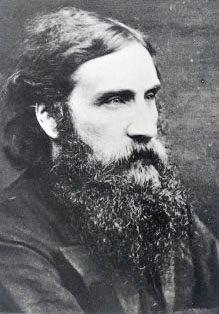 The trend in the United States, which is slowly worming its way into Spain is to demand teacher accountability via standardized tests. Focusing too much on and offering teacher compensation (or "spanking teachers") based on the results of standardized tests means that we will attempt to produce standardized students that can write these tests, not independent thinkers that can solve higher level problems outside of the curriculum.
The trend in the United States, which is slowly worming its way into Spain is to demand teacher accountability via standardized tests. Focusing too much on and offering teacher compensation (or "spanking teachers") based on the results of standardized tests means that we will attempt to produce standardized students that can write these tests, not independent thinkers that can solve higher level problems outside of the curriculum.Students will be written by tests.
To see the focus of today on standardized tests, content based courses, and expensive inventions which supposedly "spark the imagination", but rather facilitate attention to "empty vessel" content-centered teaching makes me feel that imagination needs a defender much more capable than myself.
George Macdonald, (10 Dec, 1824 - 18 Sept, 1905) wrote fairytales and novels for "children and the childlike". He is not a terribly well known writer today, but is the source of many great writers. He inspired writers such as Tolkien, Chesterton, C.S. Lewis, and his contemporary friend, Mark Twain. His "The Light Princess" is an excellent fairytale that can be used as teaching material (I believe Macmillan sells a reader, although the story can be downloaded freely.)
Mr. Macdonald has an excellent defense, in his "A Dish of Orts" available, at no cost, in Project Gutenberg. (Project Gutenberg is in itself an excellent defense for the accusation that internet is killing reading. It is a 24/7 omnipresent library where we can carry extensive libraries of books that have stood the test of time, and bring them with us in laptops, ebooks, and smartphones.) While his Christian viewpoint throughout the book may not be terribly popular with everyone today (nor was it probably in his time, as Macdonald attacked hypocrisy within the church of his day, throughout all his work.) there are messages here that ring true and clear no matter what your spiritual beliefs are.
* * * * *
following excerpts from A DISH OF ORTS BY GEORGE MACDONALD. EDENBRIDGE, KENT. August 5, 1893.* * * * *
Those who would quell the apparently lawless tossing of the spirit, called the youthful imagination, would suppress all that is to grow out of it. They fear the enthusiasm they never felt; and instead of cherishing this divine thing, instead of giving it room and air for healthful growth, they would crush and confine it--with but one result of their victorious endeavours-- imposthume, fever, and corruption. And the disastrous consequences would soon appear in the intellect likewise which they worship. Kill that whence spring the crude fancies and wild day-dreams of the young, and you will never lead them beyond dull facts--dull because their relations to each other, and the one life that works in them all, must remain undiscovered. Whoever would have his children avoid this arid region will do well to allow no teacher to approach them--not even of mathematics--who has no imagination.
The power that might have gone forth in conceiving the noblest forms of action, in realizing the lives of the true-hearted, the self-forgetting, will go forth in building airy castles of vain ambition, of boundless riches, of unearned admiration. The imagination that might be devising how to make home blessed or to help the poor neighbour, will be absorbed in the invention of the new dress, or worse, in devising the means of procuring it. For, if she be not occupied with the beautiful, she will be occupied by the pleasant; that which goes not out to worship, will remain at home to be sensual. Cultivate the mere intellect as you may, it will never reduce the passions: the imagination, seeking the ideal in everything, will elevate them to their true and noble service. Seek not that your sons and your daughters should not see visions, should not dream dreams; seek that they should see true visions, that they should dream noble dreams.(...and a little bit later...)
For, if the whole power of pedantry should rise against her, the imagination will yet work; and if not for good, then for evil; if not for truth, then for falsehood; if not for life, then for death; the evil alternative becoming the more likely from the unnatural treatment she has experienced from those who ought to have fostered her.
* * * * *
We have to allow children not only to solve problems, but to find the problems themselves.
We have to allow children to be productive individuals, not mere bubble test consumers.
We have to allow children to see true visions, and dream noble dreams.
No hay comentarios:
Publicar un comentario